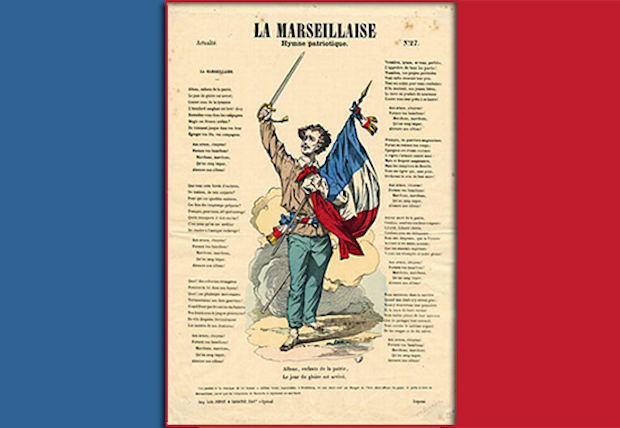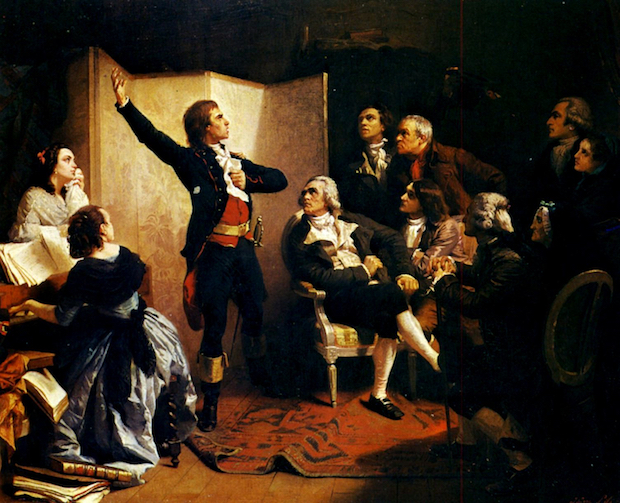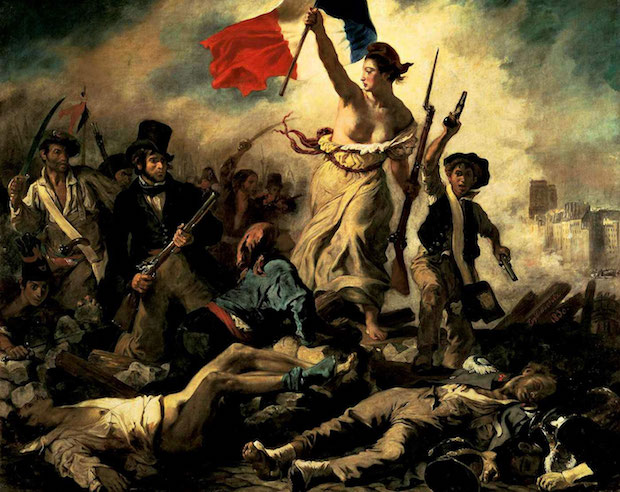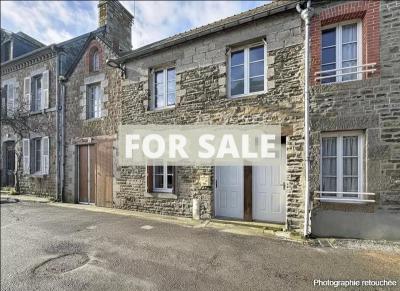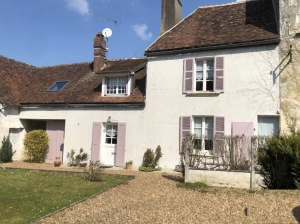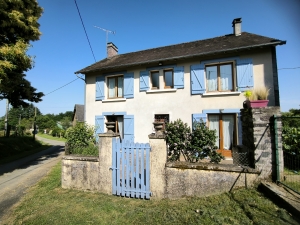Aux armes, citoyens !
Les hymnes nationaux (national anthems) are patriotic numbers used to tell the history, traditions, and struggles of a country and unite its citizens. Their styles vary per country, some versions are standard fanfares, some sway more toward operatic pieces, and others have difficult lyrics that are very easy to mess up and difficult to remember!
I have always enjoyed my country’s anthem, even though I have to admit to not knowing all the verses... that being said, I have always been a fan of France’s national anthem, La Marseillaise.
This past week, just as in January with the Charlie Hebdo attacks, La Marseillaise has been performed worldwide. After the attacks on November 13th, The Metropolitan Opera, the Philadelphia Orchestra, and the Lyric Opera of Chicago all performed moving renditions. English fans at Wembley were encouraged to sing along as lyrics were displayed during the soccer match against France on Tuesday. Muslim leaders sang the piece in Paris. All of French congress joined in to sing their anthem. Perhaps the most moving recent example of the solidarity is a 36-second clip of soccer fans singing while being evacuated from the stadium after les attentats (the attacks). La solidarité est partout (Solidarity is everywhere).
I must admit that every single time I hear this anthem, I get chills. There’s something about this piece — especially when sung in a group — that makes me feel like I’m part of something strong. I suppose it does help that it was first written as un chant de guerre (a war song). That also explains why this piece is so controversial, even at the time it was written in 1792.
The French Revolution
As la Révolution française progressed, European leaders feared that revolutions may pop up in their own countries. La Première Coalition was an alliance that lasted from 1792 to 1797 and was founded by European monarchies against the short-lived Royaume de France (the Kingdom of France) and eventually la Première République (the French First Republic), which lasted until 1804. The coalition forces eventually entered France, and on le 25 avril, 1792, (April 25, 1792), the mayor of Strasbourg requested that Claude Joseph Rouget de Lisle compose a song to rally soldiers from all over France to fight to defend their homeland. That evening, he wrote the piece intitulé (titled) “Chant de guerre pour l’Armée du Rhin” (War Song for the Army of the Rhine).
So how did it get its name of “La Marseillaise” ? By the end of May, les fédérés (volunteer troops for the French National Guard during the revolution) from Marseille had heard the song and adopted it as their own war march. When they arrived in Paris in July singing the song, it acquired its new nickname which has stuck to the present day.
Do you know the words to the anthem? They’ve been the cause of une polémique (a controversy) for years now. They lyrics make a call to Frenchmen by first asking if they hear the roars of the ferocious soldiers in the distance. These soldiers would be coming to cut the throats of your sons and wives. It then goes on to ask the men to go to arms, form battalions, and let un sang impur (an impure blood) water their fields. Not a very happy message...
La Marseillaise
“La Marseillaise” was adopted as the French national anthem le 14 juillet, 1795 (July 14, 1795) by la Convention nationale (The National Convention). In its history, the anthem has both been banned and had its status removed under Napoleon I when he saw its power and feared a revolution against his regime. Other sources say that Rouget de Lisle may have had an affair with Napoleon’s wife. That could be something you would take personally, and Napoleon was definitely in a powerful enough position to do something about it. During his reign, “Veillons au Salut de l’Empire” (Let’s Ensure the Salvation of the Empire) was the anthem of the regime. “La Marseillaise” would eventually be re-instated for a while after the July Revolution in 1830.
Under Napoleon III, the anthem was “Partant pour la Syrie” (Departing for Syria), a very chilling title after recent events. “La Marseillaise” was formally recognized as the French National Anthem in 1879, and it hasn’t been changed since!
During La Deuxième Guerre Mondiale (WWII), French people found new meaning in the words as it became a call to rebuild their country. Aux armes, citoyens! Since this time, though, many Frenchmen have found the words to be very uncomfortable. For example, in 2002, Corsicans booed the anthem so loudly that Jacques Chirac (president at the time) left the match, which couldn’t be started till the booing had ceased.
So how do French people feel now? I decided to ask some of my French friends what La Marseillaise means to them. The answers varied, but for the most part were consistent: they like the instrumentation, but don’t care for the lyrics. One friend told me she didn’t know all the lyrics. Another told me he only hears it at sporting events. Some of their replies focused on the current issues the country is facing. Below are their unaltered opinions.
To me it’s a very powerful anthem, because it shows what we were capable of for sovereignty by the people, it’s the music for the Lumières, those intellectuals that changed the face of France, and of Europe. They were against blind faith for some, complete atheist for other, they were against the monarchy, they were for equality between the people (no more classes, no more differences, just human beings born to live on that earth and make the best out of it). It’s also a fierce anthem, a war song, something to give us courage, it’s bloody, but that’s war, there’s always blood. And also it gives me hope. When I hear my anthem, it always gives me chills, no matter who’s singing it, it’s powerful to me: it moves me no matter what, as if it’s meaning, the person who fought for it, passed the ages to come to us and sing for us, to encourage us to fight for our ideals. That’s the fight: to fight for our ideals.
C’est une chanson qui me donne vraiment l’impression d’appartenir à un pays fort. Elle montre aussi que la France a une histoire riche. Quand je l’entends, elle me motive à accomplir des choses.
This song really gives me the impression that I belong to a strong country. It shows that France as a rich history. When I hear it, it motivates me to accomplish things.
En Francais... C’est une vieille chanson écrite (si ma mémoire est bonne) par un soldat. Du coup, les paroles, ou du moins celles du couplet qui est chanté, sont assez guerrières (peu de gens connaissent les autres couplets et moi non plus). Personnellement, ça m’a toujours un peu dérangé de chanter “Qu’un sang impur abreuve nos sillons” . En plus depuis les attentats, on l’entend à tour de bras, c’est très étrange. Le sang impur est métaphorique mais je trouve pas ça de très bon goût au XXIème siècle dans le pays des Droits de l’Homme. Le reste du couplet est plutôt bien je trouve, il est fédérateur et parle de valeurs justes comme la liberté, la lutte contre la tyrannie.Mais ça reste un chant guerrier. Honnêtement, je serais pas contre une réécriture ou carrément un changement d’hymne pour aller vers quelque chose qui montre mieux nos valeurs. Mais en même temps, un hymne c’est fait pour faire bomber le torse au pays auprès des autres donc je sais pas trop.
It’s an old song was written by a soldier. So the lyrics, or at least in the sung verses, are war related (few people know the other verses, me included). Personally, it’s always bothered me to sing “an impure blood waters our fields.” Since the attacks, we hear it sung with all one’s might. It’s very strange. Impure blood is metaphoric, but I don’t feel it’s in good taste in the 21st century in the country of Human Rights. The rest of the verses aren’t so bad. They’re unifying and talk about values like liberty and the fight against tyranny. But it’s still a war song. Honestly, I wouldn’t be against a rewriting or even a new national anthem to better shows our values. But at the same time, anthems are made so you can puff out your chest around other countries, so I don’t know.
En Francais... Concernant l’hymne national mon ressentis est que cela représente quelque chose de très patriotique. J’entends l’hymne national les 3/4 du temps lors d’événements sportifs de mon côté. Mais pas autant que dans des pays comme les États-Unis ou le Canada où j’en ai fais l’experience à l’université. L’hymne français est de plus une hymne très “puissante” en terme de paroles, car cela vient d’un chant de guerre. Je ne pense pas que l’on puisse nier les paroles lorsque l’on chante la Marseillaise. C’est peut être pour ça aussi qu’elle n’est pas chantée par tout le monde lorsque l’on l’entend. Du moins c’est le prétexte que j’entends le plus souvent.
Concerning the national anthem, my feelings are that it represents something very patriotic. I hear the national anthem 3/4 of the times I go to sporting events, but it’s not as often as other countries like in the UK the US or Canada, where I’ve studied at the university. The French anthem is very “powerful” in its lyrics. I don’t think we can deny those lyrics when we sing la Marseillaise. Maybe that’s why not everyone sings it when we hear it. At least, that’s the reason I hear most often.
En Francais... Le gouvernement français s’est rassemblé pour chanter La Marseillaise et montrer que la France ne cédera pas à la panique ou au terrorisme et que nous sommes soudés, mais c’est faux. Les ministres se tapent dessus continuellement et peu après ce passage “émotion” ça a continué. Oui il faut se montrer soudé et unis face à tout ça mais le mieux c’est de continuer de vivre sa vie car au final ils veulent juste nous faire peur et nous faire sombrer dans ce chaos, leur montrer que malgré tout leur tentatives ça n’arrivera pas, voilà la plus belle façon de lutter. Mais je trouve ça toujours aussi beau de voir les monuments à travers le monde allumé par solidarité et en même temps horrifiée qu’ils le soient aussi souvent.
The French government got together to sing La Marseillaise and show that France will not give into panic or terrorism and that we’re united, but that’s false. The ministers continually fight about it and just a little after this ‘emotional moment,’ the fighting continued. Yes, we have to show we’re united against all of this but it’s best to continue living our lives because in the end, they (the terrorists) just want to scare us and make us sink into this chaos. We need to show them that despite their attempts, it’ll never happen. That’s the best way to fight. But I do think it’s beautiful to see all the monuments around the world lit up in solidarity, but at the same time, I’m horrified that it’s happening so often.
En Francais... Je n’aime pas beaucoup les paroles guerrières de ce chant et je trouve qu’elles manque de douceur. Au niveau de la mélodie, j’aime particulièrement la fin du couplet où la musique est plus douce et mystérieuse . En tant que Française, je ne suis pas sûre d’être objective avec La Marseillaise car je suis le plus souvent émue en l’écoutant . Comme c’est notre Hymne nationale, j’y suis attachée forcement . Pour moi, c’est la mélodie qui représente notre Pays, j’essaye de ne pas pensé aux paroles brutales . Mais je trouve beau quand une assemblée tout entière la chante. J’aime l’idée que nous chantions ensemble un même air, comme si tout à coup, on était tous d’accord et en harmonie.
I don’t much like the warlike lyrics of this song, and I find that it’s lacking softness. As for the melody, I particularly like the end of the verse where the music becomes soft and mysterious. As a Frenchwoman, I’m not sure I’m being objective with La Marseillaise because I’m often moved when listening to it. Seeing as it’s our national anthem, I’m strongly attached to it. For me, it’s the melody that represents our country – I try not to think of the harsh lyrics. But I find it beautiful when an entire group sings it. I like the idea that we’re singing the same tune together as if, suddenly, we were all in agreement and harmony.
How do you feel about La Marseillaise?
Blog submitted by: Alex at The French Property Network - Cle France.
This blog was originally posted on The French Language Blog pages.
